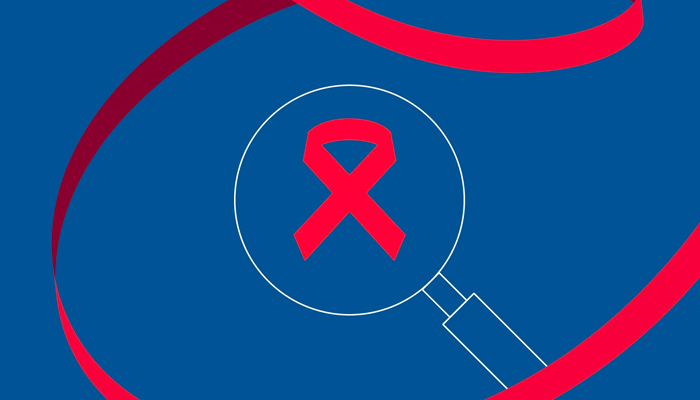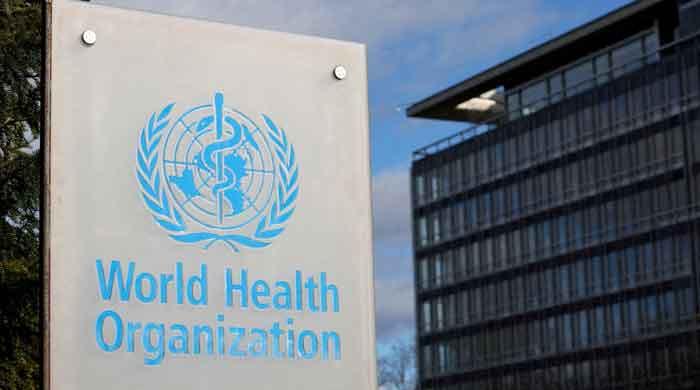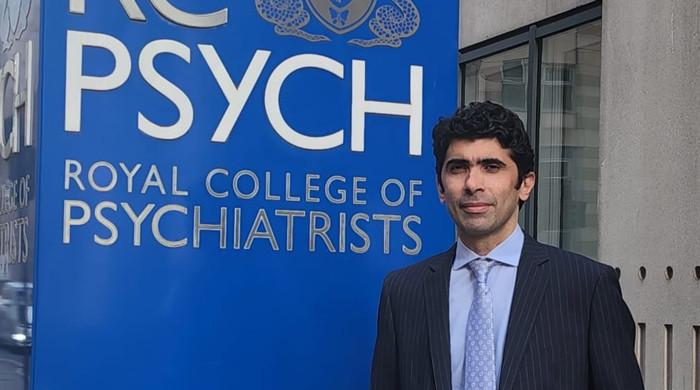Sindh High Court orders equal treatment for HIV/Aids infected transgenders
SHC seeks implementation report from provincial health secretary on matter after summer vacations
June 07, 2023

- Trans activists Shahzadi Rai, Hina Baloch filed plea in court last week.
- SHC strictly directs hospital to immediately begin treatment.
- Hina terms court verdict issuing access, right to healthcare "victory."
KARACHI: The Sindh High Court (SHC) Wednesday ordered the Civil Hospital administration to start immediate treatment for transgender patients of HIV/AIDS.
After transgender activists Shahzadi Rai and Hina Baloch, represented by advocate Sara Malkani, filed a petition last week on the matter of negligence towards transgender patients, the court conducted a hearing on the hospital's refusal to treat them, leading to the subsequent order.
The two activists, who advocate for transgender rights, highlighted in their plea that the hospital's administration discriminates by denying treatment to HIV/Aids patients, including transgender individuals, thereby violating their fundamental human rights and turning them away without proper care.
The court, therefore, has strictly directed the hospital's administration to immediately begin treating all patients of the disease, including transperson, without any discrimination with prescribed protocols followed stringently.
An implementation report has also been sought by the court from the provincial health secretary regarding the matter after summer vacations.
Speaking with Thenews.com.pk, Baloch said that this issue has been going on for the last two years with transgender patients of HIV/AIDS. "There were around six khwaja siras who were HIV positive of which the cases of four patients were serious."
She added that while medicines for the illness are available at all hospitals, the problem arises when there is a surgical intervention of any sort due to any accident after which hospitals don't cooperate with transpersons.
"It is already difficult being a transgender in this country, but the stigma around the disease adds another layer of oppression, which is why they [hospital staff] don't consider it appropriate treating khwaja siras," Baloch said.
The trans rights activist, who is a transwoman herself, mentioned that apart from herself and Rai, three petitioners were also trans persons and were facing challenges due to discrimination in relation to their health issues.
"One has to undergo surgery of the hip joint. Another has to get their leg operated on, while other transpersons need attention for hernia and dialysis. All these procedures require the surgical intervention of some sort, but the hospital was not cooperating in this," she added.
Baloch also highlighted the case of a late transperson, Chanda, who went from pillar to post at the Civil Hospital's various departments at least four to five times to get her treatment done for a wound developed after she was hit by a vehicle.
"They were not applying a bandage to the wound. Our community members cared for her as much as they could. Even we contacted the hospital, after which they conducted her check-up and then asked her to get the treatment done elsewhere," she said.
Baloch stated that Chanda was HIV positive and would face discrimination upon medics finding her medical history.
"We would inform the medical practitioner that she was an HIV-positive patient so that they could ensure precautions during treatment. They wouldn't treat after finding out about the HIV status. Civil Hospital staff knew, but they were not treating her deliberately."
Chanda eventually died after succumbing to her wounds. "This was criminal negligence," Baloch said.
The activist said she and Rai filed the plea last week. "I attended the hearing today, along with Sara Malkani and our friend who cared for the transpersons. We informed the court that there are three more khwaja siras who need immediate medical relief and surgical intervention," she said.
Baloch added that the judges heard them and warned hospital administration to ensure immediate treatment to the patients, who will visit the hospital tomorrow.
"In such challenging times, the access and right to healthcare is a victory for us. This is hard work, struggle and a global issue. This issue was raised in the US during the 1980s, but it has surfaced now in our part of the world. It is still in the making and it was a landmark verdict," she added.
Meanwhile, the Civil Hospital Additional Superintendent Dr Harish Kumar stated that the medical facility has appointed a focal person to ask transpersons to contact the hospital today. "We are ready for the treatment," he said.
He further refuted claims of discrimination stating that the transperson may have some misunderstanding.
"Never thought of discrimination. There is a screening phase before the treatment of an HIV-Aids patient," he added.
Meanwhile, the provincial high court asked trans patients to contact the focal person today, ordering for their treatment process to be ensured by him.
The court's order read that there should be no discrimination against transgender persons.












